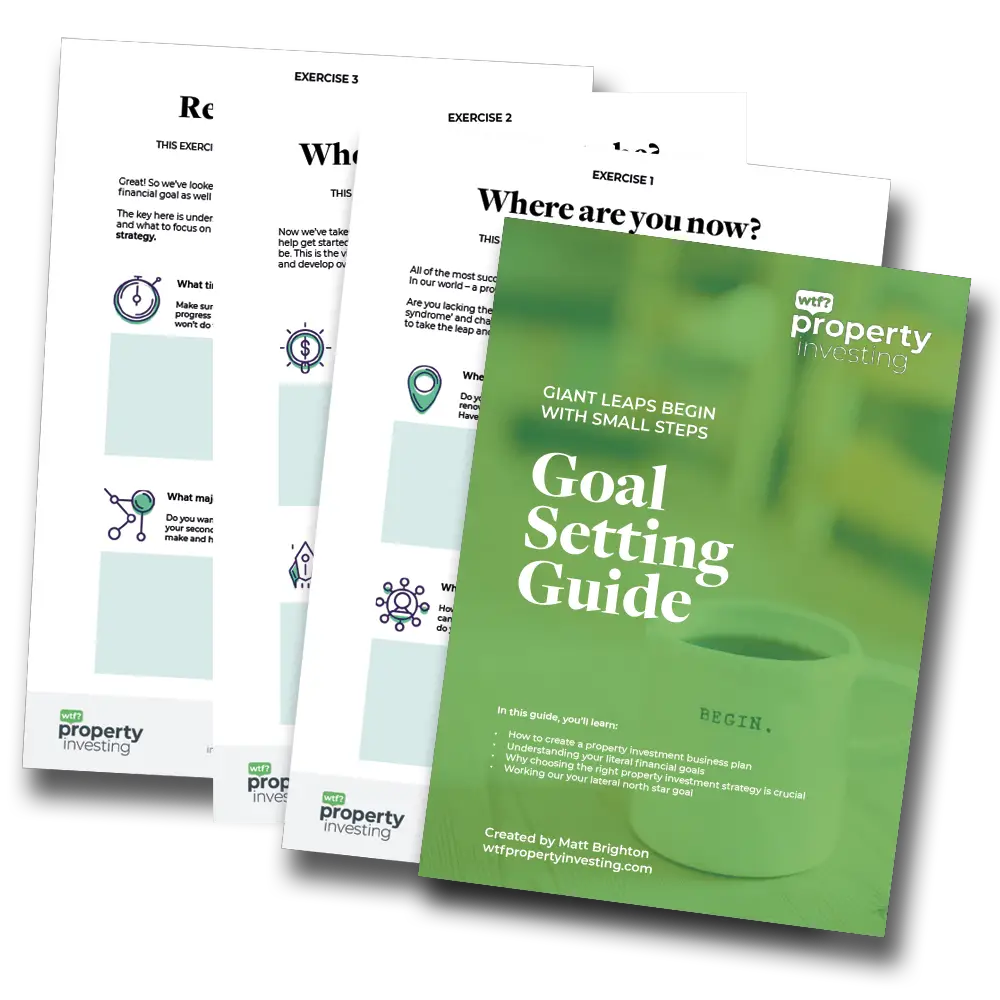⏱️ 15 minute read
📅 Written on Aug 4th 2020
Last Updated: 20th May 2022 @ 11:48am
Looking to get started as a property investor?
Work your way through our 6 part property investing guide for beginners
Part 2:
2022 Property Investment Strategies
Part 3:
Calculate Yield & ROI on Investment Property
Part 4:
Buying Property Through a Limited Company
Part 5:
Best HMO Investment Areas in the UK
Part 6:
How to flip a house as a property investor
Disclaimer: You should speak to an accredited accountant to get suitable advice for your situation. I am not a registered professional and this is not tax advice.
The property market has gone through drastic change over the past few years.
Traditional amateur investors who have 1 or 2 properties in their own name are paying more tax.
The government have removed tax relief on mortgage interest for property in personal names.
It feels like a shift to ensuring landlords operate more professionally.

Only 5 years ago there was barely any choice in the market. Most mortgages were for personal buy-to-let. Limited company mortgages were expensive and non-competitive. 🙅♂️
In 2015, the government announced their summer budget. This changed treatment of tax relief on mortgage interest. This created a shift in the market 📊. Before, landlords could claim interest as a deductible expense with property in their own names. Over time this would be phased out.
The great news is… this doesn’t apply to limited companies! 🙌
The reality is, a limited company won’t be for everyone. Naturally to run a company will cost a bit more. This means accountants fees and other various costs. 🧮
Getting the right company and tax structure set up should be the key focus 🔑 for every new investor. At least if you aim to take it seriously and long term.
Ensuring you are set up correctly could make a large difference in the tax you pay. This includes if you pass away.
A big factor to consider is whether you’re a standard or higher rate taxpayer. To check out the latest rates view the Gov.UK website.
If you’re a higher rate taxpayer, it is likely to mean if you flip a property, you’ll pay more tax. Versus through a limited company which can save 💷 you money. View the latest corporation rates here.
There are 3 key areas to explore as to whether you should consider thinking about buying property through a limited company
Tax
If you own a property in your personal estate, profits you make are added to earnings. This means if you’re a higher rate taxpayer, you’ll pay more 🤑 tax.
However, if it’s held via a company, profits are taxed at corporation tax rates. This is usually HALF of the higher rate taxpayer rate. Hence saving 🐷 a lot of money.
If you take out dividends from a company, a small amount is tax-free. The rest is a MUCH lower rate. Check out the dividend tax brackets here.
Property Business Plan
I wrote a fantastic guide on putting together and understanding your property business plan and strategy.
If your aim is to become a full-time investor. A limited company may be best for you. This allows you to keep money within the company and minimise tax.
Alternatively, you can legitimately wipe off a lot of expenses that become non-taxable. A savvy accountant will be able to help you with this.
Inheritance & Succession Planning
One thing a lot of professional investors don’t think about is succession planning. 👴
What happens as you get older? Or if you passed away. Would your hard work and portfolio be taxed heavily?
Again having the right setup here will mean your children or family inherit a better size of the wealth generated by having the right structure.

Free Goal Setting Guide
Are you struggling to find focus in your property business? Do you have a clear, tangible and measurable plan of action? Download this free handy goal setting guide that explores wherey you are today, your financial literal and north star lateral goals – and what you need to do to bridge that gap to meet your goals.
Although the benefits sound great for having a limited company. Let’s explore why you might NOT ✋ want to invest through a company.
🏛️ Product Availability
Even though the budget was announced 5 years ago and the shift started then. It’s a relatively new change for investors, lenders and the market.
This means that the commercial mortgage market is still catching up. Rates ARE getting better every day. But it’s taking time ⏱️ for banks to catch up.
It also means a bit more paperwork 📃 through a company and a few extra hoops. But things are improving.
Brokers are now suggesting that up to 80% of buy-to-let applications are now through limited companies. So banks are responding to this with competitive rates. 💯
As investors move into the limited company direction, lenders have to follow.
It’s quite likely you’ll need to give a personal guarantee to the lender. They will also trawl through your personal accounts. So your company won’t shield you personally. 🤠
But it will help you from a tax perspective.
Dividend tax rates used to be very generous 💰. They’re decreasing year on year at the moment. However, if you want to keep the money in the company, just pay tax on your profits.
Then you can leave the rest to save up for another property. 🏠
If you intend to take money out of the company to spend, you’ll be taxed on the dividends. Or salary, depending on how you pay yourself.
A famous saying is that accountants are worth their weight in gold. The aim of an accountant is to ensure your company is set up correctly. ☑️
And you’re maximising your tax allowances. To pay as little tax 🤏 as possible.
But, this means just to keep the lights running you could be paying £1000+ just for your annual accounts.
It also means you’ll have varying extra paperwork to sort out. And to keep costs down you might have to do your own bookkeeping. 📚
Get the latest scoop on what’s happening and say hello!
The ultimate way to get all of the latest ups and downs of property investing.
Learn from all my mistakes AND successes to help you create a property portfolio or optimise your existing one.
Get inspiration on slick interior design, all while mingling with like-minded investors.
See you on the other side.
We’ve covered you should consider tax, your property business plan and succession planning.
There are a few other areas to think about, to help you understand your options. 🤔
💸 How much do you earn?
If you’re a higher rate taxpayer, then using a limited company is going to be appealing.
It’ll save you on paying additional tax, and means more money to re-invest.
💷 Do you need income?
If you’re looking to pay yourself from your property straight away. It might not be the most tax-efficient way. However, if you keep it in the company, and let it save up. This could be way more beneficial.
💰 Mortgage interest rates
The key change that created the industry shift into limited companies in the first place.
If you want to claim all of your mortgage interest as an operating expense. A company is going to be better off for you. Especially if you’re a higher rate taxpayer.
💀 Beyond your lifetime
Are you wanting to pass down generational wealth? Do you want to sell up once you retire?
Having properties in your own name means a huge inheritance tax bill for your children if that’s your plan. Therefore a company is better in this scenario if structured correctly.
You should think about what you want to do as an exit strategy for your portfolio. As you get older and you have less patience for the stresses of property investing.
What will you do? 🤷♂️
Hopefully, the message from this guide is… there are many variables.
It all depends on you 🙆♂️, your circumstances, your strategy.
Your choice in strategy and handling the money will determine which is best for you.
There are so many variables and factors to consider. Weigh up the pros and cons of both ways to invest in property.
I highly recommend speaking to an accountant to talk through your situation and plans. This guide should arm you with basic knowledge. You should use this to have a productive conversation with a registered professional.
📮 No spam, ever. 📅 1 email a week. 👋 Unsubscribe anytime.

Goal Setting Guide
Pop in your email and I’ll send you the free guide!
Be a part of a supportive, wholesome group of like-minded people.